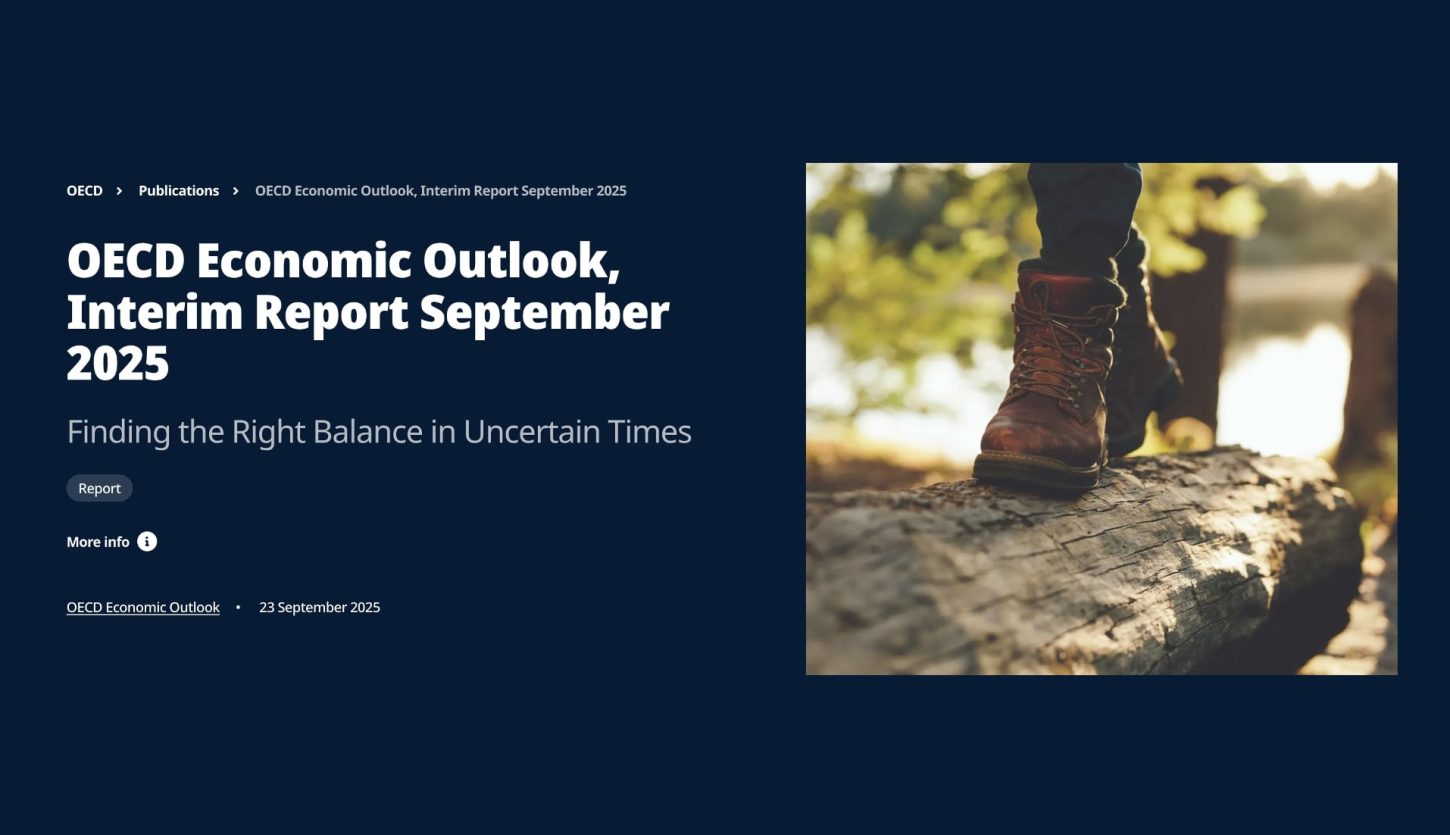The OECD’s latest Interim Economic Outlook, published today, fails to address the urgent needs of workers facing a “double squeeze” from sluggish growth and restrictive monetary policy. Despite the OECD projecting slightly improved global growth for 2025 (revised to 3.2% from 2.9%), trade unions highlight the concerning reality these figures mask: the OECD’s own projection of a slowdown to 2.9% in 2026, well below the 3.3% recorded in 2024.
TUAC highlights the alarming deterioration in specific labour markets, with unemployment rising in the US, Canada, UK, Australia, France and Germany, despite the overall OECD rate holding steady at just under 5%. Export-oriented manufacturing sectors face particularly severe threats as supply chains restructure in response to shifting trade patterns and tariff increases, intensifying a series of compounding shocks that have created severe and long-lasting scars on household finances.
"Workers have been hit repeatedly, first by the pandemic, then by surging prices. Inflation is now much lower, and many countries are nearing targets, yet the scars of high borrowing costs remain. This is the moment to lock in a worker-centred recovery, not pull back."
Rather than embracing this opportunity, the OECD continues to cling to fiscal “discipline”, despite its own research finding that “favourable cyclical conditions” have historically driven debt reduction far more effectively than fiscal consolidation. Instead of austerity, trade unions demand strategic public investment in education, health, social policy, active labour market programmes and green infrastructure to stimulate demand, create jobs, and build resilience against climate risks and geopolitical shocks.
On monetary policy, TUAC argues the Outlook is too cautious: while it supports continued cuts where underlying inflation is moving towards target, it stops short of urging a faster pace. Given headline inflation in G20 countries is projected to decline to 3.4% in 2025 and 2.9% in 2026, with inflation levels close to, or already even below, central bank targets Iin many economies, TUAC calls for quicker easing to avoid inflation undershooting and re-creating a low-inflation, low-growth trap of the previous decade.
While TUAC welcomes specific OECD recommendations on formalising work, improving digital skills, and promoting female employment, it firmly rejects the broader agenda of budgetary austerity and deregulatory reforms. Instead of these misguided policies that would deepen inequality and undermine worker protections, TUAC advocates for a worker-centred recovery that invests in people, strengthens household resilience, and builds more equitable, sustainable economies that benefit working families rather than simply reducing debt ratios.
Image credit: OECD

